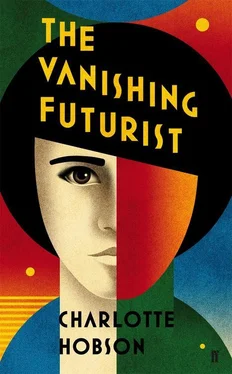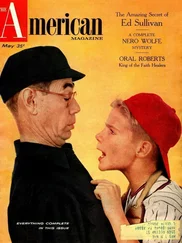Charlotte Hobson
THE VANISHING FUTURIST
What is man? He is by no means a finished or harmonious being. No, he is still a highly awkward creature. Man, as an animal, has not evolved by plan but spontaneously, and has accumulated many contradictions… To produce a new, ‘improved’ version of man – that is the future task of Communism. Man must look at himself and see himself as a raw material, or at best as a semi-manufactured product, and say: ‘At last, my dear homo sapiens, I will work on you.’
Leon Trotsky
There are things which a man is afraid to tell even to himself, and every decent man has a number of such things stored away in his mind.
Fyodor Dostoevsky
ON THE NIGHT of 21 January 1919, the Russian inventor, physicist and polymath Nikita Slavkin vanished.
In the months and years that followed, the Soviet press reported that the Socialisation Capsule, Slavkin’s latest invention, represented an extraordinary advance in human knowledge. Slavkin, building on the theories of his hero Einstein, had revolutionised our understanding of the universe. What’s more, his disappearance was proof that his theories had a practical application: he had found a means of subverting time itself. ‘The Vanishing Futurist’, as he was dubbed, became a Soviet icon. Monuments and streets were named after him, biographies written, children’s books, portraits, films. No word has been heard from him since that day. Yet the idea persists, based on Slavkin’s own remarks, that one day he will reappear; that if his Socialisation Capsule can distort our perception of temporal reality, then it can equally reinstate it.
In the 1950s, the film The Vanishing Futurist showed Slavkin climbing into his Capsule and fading away. It ended with one of the characters saying dreamily, as the camera panned over a scene of empty, sunny countryside, ‘Who knows? Perhaps Nikita will come back for us one of these days. “Come on, jump in, comrades,” he’ll say. “Don’t you want to see Communism for yourselves?”’
In May 1914, much against the advice of my parents, I took up the post of governess to the Kobelev family, of No. 7, Gagarinsky Lane, Moscow. My new house was a large, ramshackle building, in need of a good coat of paint; it was reddish-brown, with a hefty, slightly sagging façade of white columns and pediment. On the other three sides leaned a mass of shabby outbuildings: coach house, stables, laundry, kitchens, bath house, servants’ accommodation, a courtyard full of poultry and an overgrown lilac hedge. As I put my head out of the carriage, my first impression was of the dizzying scent of lilac and the heavy branches of pale, wet blossom gleaming in the half-light. My second was of a surprisingly deep and oily puddle, into which I immediately stepped.
I include these details because, now that I sit down to piece together these memoirs, it strikes me that they give a rather accurate shorthand of my life with the Kobelevs. Before I left my home in Cornwall, my parents and their friends had informed me at length of the mistake I was making. Several girls of our acquaintance had gone off to France or Italy to work as governesses, while Jenifer Trevargo was in Austria and, so we heard, skiing like a demon, but Russia was generally held to be a country of wild Cossacks, bears, anarchists and so forth. My father, a solicitor in Truro who had no natural inclination towards adventure, would never have given his permission if it had not been for the fact that the introduction came through the redoubtable Miss Clegg. Miss Clegg was born and bred in Truro, a solid, leathery woman as dependably stuffed with good Chapel values as a pasty is with potato, despite the fact that she’d been working as a governess in Moscow for almost a decade. Nonetheless, my mother wept when I told her I wanted to go.
‘Oh, you are unfeeling! Aren’t there enough children needing to be taught in… in Devon, or somewhere?’
But I was a bookish, scrawny girl, a spinster in the making; argumentative and contrary to my father (as he often said) and disappointingly serious to my mother, who wanted to gossip with me about clothes. Reading Tolstoy had made me long to visit this country full of peasant women in birch-bark sandals, young officers as fresh as cucumbers, forests filled with unheard-of berries. In any case I’d spent four years since leaving school underoccupied and at home. I taught a little, I assisted with the Sunday school, I helped my mother with the house. No suitors appeared to ask for my hand, if one discounts James Andrews, who had walked me home from Chapel a few times, talking gloomily about marine insurance. My parents had made it clear that not much could be expected of me, but still I hoped for a little more than this.
Nonetheless, in my first weeks it was unsettling to discover that my relatives’ warnings – particularly those made from a position of absolute ignorance and prejudice – proved remarkably accurate. The food was rich and indigestible, the climate lowering, the arrangements chaotic, and the house not terribly clean. The servants – of whom there were an astonishing number, perhaps forty – were constantly travelling up and down from the Kobelevs’ country estate at Mikhailovka, south of Moscow, so it was months before I learnt their names, let alone their duties, which in some cases seemed absurdly specific: a pickling chef, and two large, liveried footmen who brushed the hats. When they weren’t brushing hats they were usually asleep on the front doorstep, and one had to step over their legs to get in or out. The family was further swollen by all sorts of hangers-on, retired employees such as Mrs Kobelev’s aged French governess Mamzelle, Mr Kobelev’s old aunt Anna Vladimirovna, and friends or relations who seemed to drift in, staying for a meal, a day or a week as the fancy took them.
On the other hand, however – and the longer I stayed in Moscow, the more it seemed to me that this was the only hand that mattered at all – from that first auspicious whiff of lilac, there was something irresistible about the Kobelev household. The front door swung open to reveal a large, dusty, red-papered hall and the colossal rear view of a footman in brown-and-gold livery. Without looking round, he held the door open with one hand and with the other cupped his mouth so that his voice would carry further.
‘ Priekhala Mees! ’ he bellowed. ‘The Miss has arrived!’
Immediately the servants began to appear in the hall, as if they had been hiding behind doors in anticipation. Several young maids cannoned into each other as they arrived at a run. People clustered on the stairs to peer at me through the banisters. A hum of interested conversation arose, as though nothing so exciting had happened for weeks – although I later discovered that almost any arrival, even the clock-winder’s weekly visit, was greeted with equal enthusiasm.
A plump young woman with her hair in a turban, a little younger than myself, arrived, frowning. ‘Miss Freely? I’m Sonya Kobelev. Welcome.’ She gave me her hand with a limp, regal air that confused me: as I shook it, it occurred to me that perhaps she had expected it to be kissed. ‘This is my younger brother, Pasha—’
‘How do you do, Miss Freely.’ A young man with a conspicuously well-tended moustache came up behind her, smiling. ‘Pleased to welcome you to our abode.’ He spoke with an accent that hovered somewhere between Russian and lowland Scots. ‘As you can perhaps tell, I have already completed my schools certificate in English, thanks to a Miss Edie Campbell from Melrose.’
Читать дальше





![Майкл Муркок - Спящая волшебница / The Sleeping Sorceress [= Участь Белого Волка, Рыцарь Хаоса, The Vanishing Tower]](/books/327544/majkl-murkok-spyachaya-volshebnica-the-sleeping-sorc-thumb.webp)






